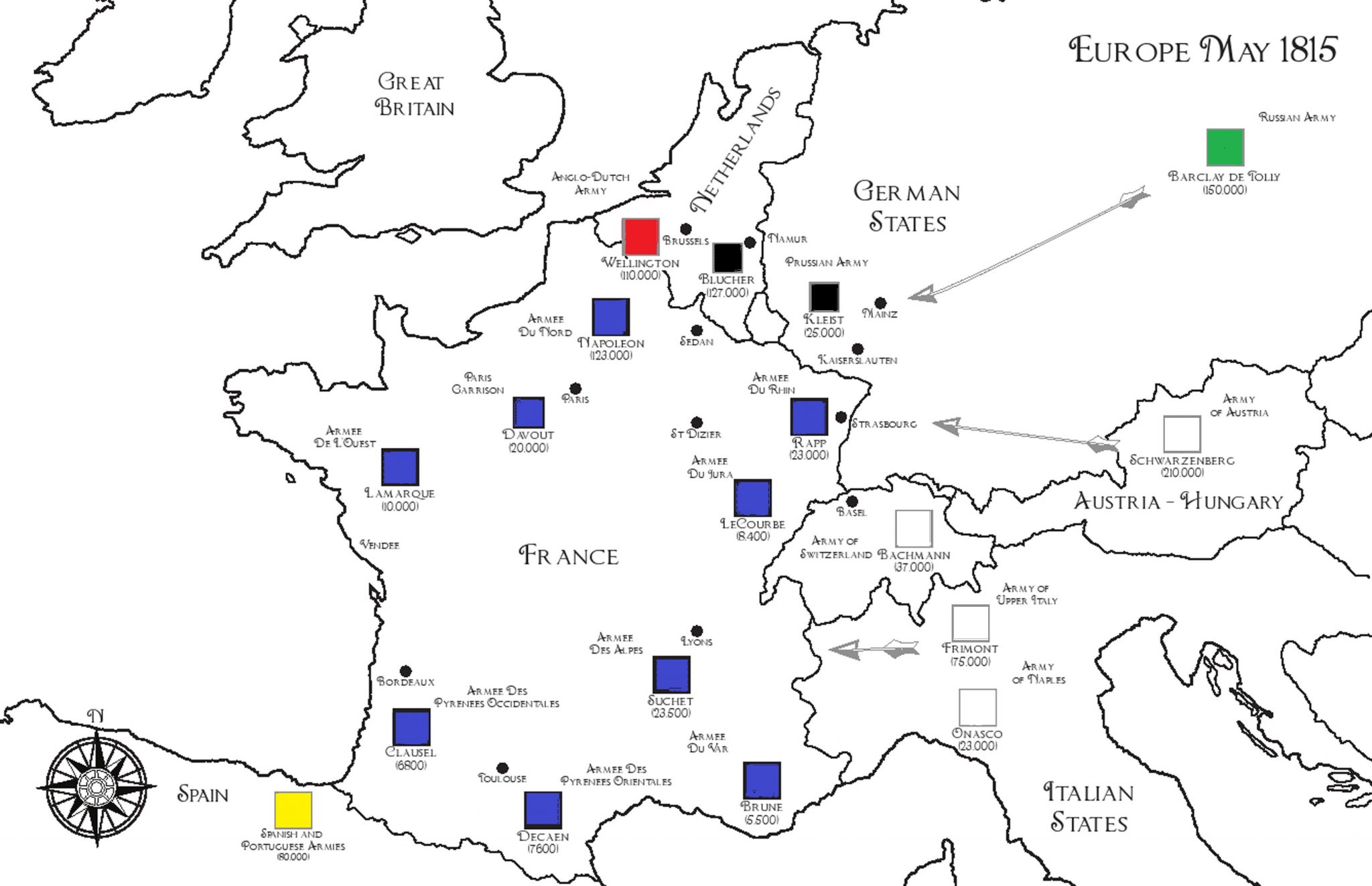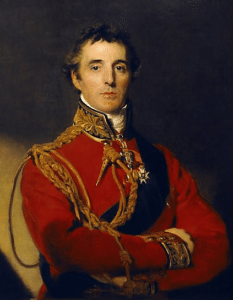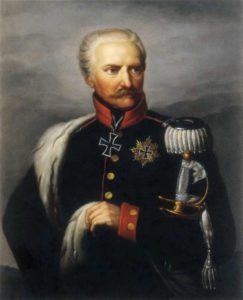
Napoleon had found France divided on his return. The military were very much for him, but the country as a whole was war weary, having been at war almost constantly for twenty three years and having suffered over a million casualties (the loss to France, although over a longer period, was in fact similar, in proportion to the size of population to her losses in the First World War). Many areas of the country were openly hostile to a new war or at least quietly obstructive; the internal situation was far from promising.
But internationally the situation was if possible far worse. A Congress had been convened at Vienna to sort out all of the difficult questions over land rights and borders after such a long war, which had seen huge changes to the political map of Europe. They were still in session at Vienna when news arrived and they quickly agreed that all of the major powers would supply 150,000 men each and the smaller powers smaller contingents, in order to invade France with over three quarters of a million men to oust Napoleon once again. For the only time in history, that I am aware of, Europe declared war on one man, Napoleon!
But as can be seen, Russia and Austria would take a long time to bring their armies to the French border. Napoleon could either build huge defences around Paris and wait to be attacked, or he could try to destroy part of the huge allied army before they all managed to come up. The joint British/Hanoverian/Netherlands army (Belgium and Holland having only recently been joined as the ‘Kingdom of the Netherlands’) commanded by the Duke of Wellington and the Prussian army under Field Marshal Blucher were already stationed in Belgium, near the French border. Together there two armies heavily outnumbered his, but separately they were each inferior. Before the allies invaded, these two armies were separated, to enable such large numbers of troops to be fed and housed. Napoleon, saw his opportunity, if he attacked, he could destroy each of these two armies and hopefully knock Britain and Prussia out of the war.


Duke of Wellington Fieldmarshal Blucher
Many feel that Napoleon’s fate was already sealed, but was it? If he had succeeded in his plan, is it not conceivable that his father in law, the Emperor of Austria, might come to terms, leaving the Russians isolated and far from home. Is it completely impossible that a treaty would be signed allowing Napoleon to stay on the throne?
